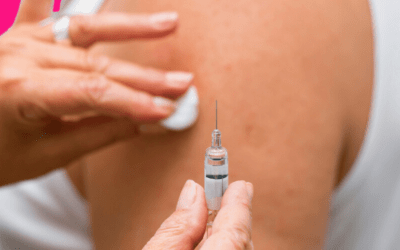Introduction:
The recent case of Lucy Letby, a nurse convicted of murdering multiple infants at Countess of Chester Hospital, has once again highlighted the critical importance of whistleblowing in healthcare. Letby’s actions, which went undetected for years, serve as a stark reminder of the urgent need for healthcare professionals to speak up when they witness wrongdoing. In this blog post, we will explore the significance of whistleblowing in healthcare and how it can help prevent such tragic incidents from occurring.
1. Protecting Patient Safety:
Whistleblowing in healthcare is not just about exposing individual wrongdoings; it is about safeguarding patient safety. Healthcare professionals who witness negligence, malpractice, or unethical behaviour have a moral and legal obligation to report it. By speaking up, they can prevent harm to patients, potentially saving lives. Whistleblowers play a crucial role in holding healthcare institutions accountable for maintaining the highest standards of care and ensuring that patient well-being remains the top priority.
2. Identifying Systemic Issues:
Whistleblowing can uncover systemic issues within healthcare organisations that may contribute to patient harm. When a whistleblower comes forward, it often reveals a pattern of misconduct or negligence that extends beyond individual actions. By shedding light on these systemic issues, whistleblowers enable organisations to address and rectify them, leading to improved patient outcomes and a safer healthcare environment.
3. Encouraging a Culture of Accountability:
Whistleblowing encourages a culture of accountability within healthcare institutions. When healthcare professionals feel supported and protected in reporting concerns, it fosters an environment where individuals are more likely to speak up about potential risks or wrongdoing. This culture of accountability not only benefits patients but also promotes professional growth and development within the healthcare workforce.
4. Preventing Retaliation:

One of the biggest barriers to whistleblowing is the fear of retaliation. Healthcare professionals may worry about the potential consequences of speaking out, such as damage to their careers or personal lives. However, it is crucial for organisations to create a safe and supportive environment for whistleblowers, ensuring protection from retaliation. By doing so, healthcare institutions can encourage more individuals to come forward, leading to early detection and prevention of harmful practices.
5. Strengthening Trust in Healthcare:
Whistleblowing plays a vital role in maintaining public trust in the healthcare system. When instances of wrongdoing are exposed and addressed promptly, it demonstrates that healthcare organisations are committed to transparency, accountability, and patient safety. This, in turn, helps to reinforce the belief that the well-being of patients and the integrity of medical organisation are both directly linked and also paramount.
Does your organisation have an open and transparent system?
It became apparent in the Lucy Letby case that healthcare professionals had raised concerns at an early stage, however these concerns may not have been treated as seriously or appropriately as they should have.
The publicity of this case will have shocked both the public and healthcare professionals. Confidence and trust in healthcare professionals is an essential component for all of us in delivering effective healthcare services.
There is no better time to look at your organisations own processes and protocols to ensure they are robust. If you believe they are not fit for purpose, do something about it. Suggest some changes, raise concerns and have the confidence in knowing that you’re acting in the best interest of your patients.




